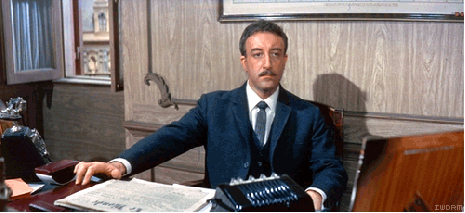Elite Popular Investor Kenneth Mowat shares his experience on the biggest forex trading mistakes that every trader should avoid and also gives advice on how to avoid them.
Kenneth is one of the Elite Investors with (at the time of writing) more than 7,000* followers and 2,000* copiers. He has more than $300,000* of copy assets under his management and finished the year with +33% return on his trades.
_____
Hello traders! As I have learned from my own experience – it is impossible for anyone to win 100% of the time in trading. No matter how good a trading system is, it can never call every twist and turn in the market. Also, nobody is perfect, and from time to time everyone will make some mistakes in their trading and copy trading; we are all human after all.
This is why it is important for us to not only know what our strengths are but also to recognize what our weaknesses are and be aware of the mistakes we may make.
I myself am well aware that one of my own personal weaknesses is a degree of reluctance to take a loss in a trade. Even though I have learned never to let a losing trade get out of control, I hate having to bank any loss. Yet, I know that my own trading performance could be substantially improved by cutting my losses earlier. However, this ‘fault’ of carrying losses too long is one of the most common issues among the vast majority of traders that prevents them from becoming successful and is one of the most difficult to overcome.
One of the major differences between beginners and those who have learned to become successful traders in the long term is that the more experienced traders repeat these mistakes like this less often. They have learned to recognize their own weaknesses and where they are most likely to go wrong, so they know how to avoid repeating the errors so often. Even then, very experienced traders can still fall into the traps that the market sets for them every now and then.
So, the first step to avoiding making one is to recognize the most common mistakes beginner traders and copiers are likely to make. Here are some of what I have found to be the most common:
1. No plan – Always have a well-prepared plan before entering a trade or copy
It may sound like a bit of a cliché but the old adage “When we fail to plan, we plan to fail” is so true in trading. In fact, most beginner traders and copiers start out with no plan at all and simply hope for the best. Without a clear plan that suits our individual goals and our personal tolerance of risk, we trade on our emotions rather than analysis. This makes it far too easy to get bounced around by the short-term extremes of optimism and pessimism that lead us to enter and exit trades or copies at completely the wrong times. For an overview of how to set the best entry and exit strategies, read the article about six things that every trader should know before entering a trade.
2. Not sticking to the plan – Always stick to the plan
Of course, even when we have a plan, we are not always disciplined enough to follow it. Lack of discipline often gets us into trouble as we then let our emotions take over. One of the most common mistakes I see beginner traders make is to keep extending stop losses and let their losses far exceed any gains.
3. Over trading – Never risk more than you are happy to lose on a single trade or copy

Beginners always believe that every trade or copy they enter will be a winner and generally overtrade their account size, either through using too high leverage or by using too high a percentage of their equity. Generally speaking, the top professional traders would never consider the risk of losing more than 1-2% of their equity on a single trade.
High-stakes trading may work well for some when it goes the right way from the start, but this common trading mistake will lead to large losses when markets go against them. Even if the reasons behind the trade are good, a high-stakes trader will often get spooked out of a trade or copy if it moves against them initially. Even worse, they may become tempted to enter a trade in the opposite direction just as the market turns and the initial trade would have turned profitable.
4. Not cutting losses – always place a calculated stop loss at the time of entering a trade to prevent losses from getting out of control

Our belief that “it looks different this time” or the reluctance to take a loss often keeps beginners in a losing trade for far longer than is affordable and they often only close it when absolutely forced to. Usually, once it is out of control and by which time it will have grown to become a devastating loss and practically impossible to recover from.
Applying the 1-2% rule is a good way of preventing this from happening but the total equity at risk in the account at any one time should also be considered. Some beginner traders enter many trades to average down as the market moves against them and can still get wiped out. Risking around 6-10% of your total account equity is probably about right.
If you invest heavily in related markets or copy several traders who all trade the same markets then your equity is at risk since you have high exposure to limited markets, but this risk can be mitigated by having a well-diversified portfolio of investments or copies.
Alternatively, you may opt to copy only one or two traders who already do a good job of limiting their risk through diversification and low exposure to any particular market.
5. Not banking gains – Always take your profits or close part of the position and set a trailing stop in profit on the balance once your price target has been hit
It often looks super bullish at the top and completely hopeless at the bottom, so the opposite side of the fear cycle and not being able to take a loss is the greed cycle. This is where you hold out for more profits, even after your price target has been printed. Bit by bit your profits can be quietly eroded as markets edge back at first…and then BOOM before you know it your once highly profitable trade is now showing a loss. Then the fear cycle takes over again.
I usually prefer to bank all my gains once my target has been hit, but many brokers now offer trailing stops.
Trailing stops
A trailing stop is when a stop loss automatically follows price movements by a set number of pips or a percentage of the gains. As the price rises, so does your stop. So closing half the position perhaps, and then setting a trailing stop allows the position to run and can often yield better returns in a particularly strong market before a reversal eventually takes place and the stop loss kicks in at a higher level.
6. Averaging down – Decide in advance how much you want to risk on this trade and then stick to the plan

There is always a very strong temptation to buy or sell more when a trade goes against you, effectively averaging your loss. If the market then turns around, it will mean that you can reduce your loss or perhaps exit with a profit much sooner. The major downside to this Martingale-style strategy is that once you start doubling up losing trades, you have lost control of the money management. You can very quickly get stuck in a massively losing position against the market trend. Sooner or later you will find yourself on the wrong side of a trend that blows your account.
7. Pay too much attention to the news and other traders’ views – Find a strategy that works for you and that you can have confidence in. Do your own analysis
For every 10 market analysts, commentators and traders that you ask, you will probably get at least 20 different opinions.
The fact is that nobody can ever know for sure what markets will do from one day to the next. You can be sure that many may be just guessing and have their own agenda. So you should always focus on what you know, and your own tried and tested strategy that works for you.
For example, if your strategy is to buy a breakout on a new daily close above the 52-week high, you will always hear lots of comments about how ‘overbought’ the market is and such. Usually, these comments are from the many people currently selling the rally and living in hope of a drop. But the fact is that in a rising trend, you expect and would wish to continue seeing new 52-week highs as prices keep moving up.
Also, the media may be reporting the latest headline news story about some ‘weak’ financial data or another. In a rising trend, you will find that the market tends to shrug off any bad news and what is being reported as possibly the start of the next market crash usually turns out to have been another great buying opportunity.
So the question is, will you allow yourself to get spooked out of the trade just at the wrong moment or would you have the confidence in your own analysis to follow your strategy?
8. Impatience – Once in a trade or copy, have enough patience to allow the profits to come to you whilst protecting yourself with your stop loss
You find a trader you decided to copy, or you enter a trade, and you check back frequently to find very little movement or perhaps even a bit of a loss. It is all too easy to become bored and close out through pure impatience. Sometimes a trade takes a little bit of time to start moving, but once it does take off, it can move very quickly. Of course, any trader you are copying may have several of these slow-to-move trades at any one time. Bouncing from trade to trade or from copy to copy through a lack of patience will generally ensure a consistent string of losses.
9. Not learning from previous mistakes – Keep a trading diary to learn from your mistakes

And finally, perhaps the most important one because as we already discussed, everyone makes mistakes. The harsh truth is that if you do not learn from them quickly in trading, your equity will not last very long. There are a lot of very clever professional traders out there whose sole mission is to take your money away from you. They will be the ones buying the markets you are forced to sell because you were in too deep and kept doubling up in a bear market, and they are selling out as you saw a hot tip in the media and decide to buy in only to discover that markets have already topped out.
Most beginner traders can’t be bothered to do it, but keeping a simple trading diary and reviewing it from time to time will quickly let you see exactly what the mistakes you are making most often are. This knowledge will enable you to quickly rectify any recurring mistakes you are making so that you can go on to become a successful trader and achieve your goals.






